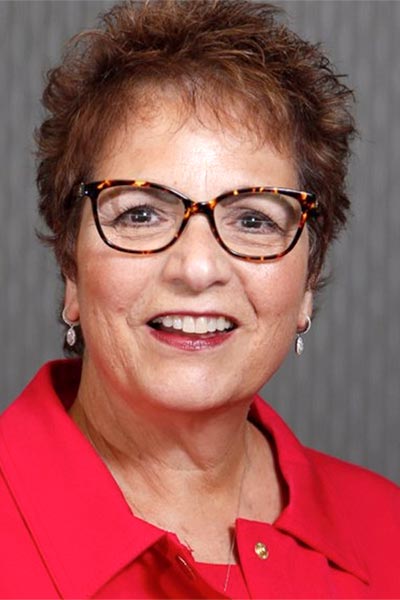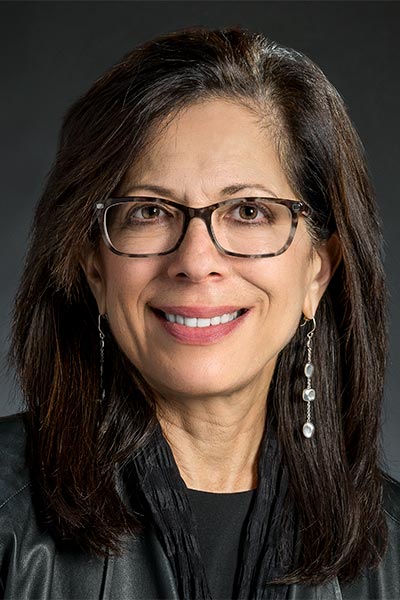Tuesday’s forums will offer expert views on cancer disparities, precision oncology, and more
//
Estimated Read Time:
The final six forums in this year’s program will be held concurrently today from 5 – 6:30 p.m. CDT. These 90-minute sessions offer a unique, discussion-based format designed to engage attendees. All of Tuesday’s forums are previewed below.
Oligometastatic Disease
Tuesday, April 12 | 5 – 6:30 p.m. CDT | Great Hall BC, Convention Center

“The topic of ‘oligometastasis’ reflects the hypothesis that metastases are a spectrum in the number of metastases and virulence,” said forum moderator Ralph R. Weichselbaum, MD, University of Chicago Medicine Comprehensive Cancer Center. “Ablative therapies such as radiotherapy and surgery may be curative in some clinical situations, but the importance of the discussion is how ablative therapies may fit into modern systemic treatments and modern imaging along the metastatic spectrum to improve patient outcomes.”
Weichselbaum will be joined in the forum by Steven J. Chmura, MD, PhD, University of Chicago, and C. Jillian Tsai, MD, PhD, Memorial Sloan Kettering Cancer Center, who will discuss her work using ablative radiotherapy to improve outcomes in patients with lung and breast cancer who were initially treated with systemic treatment but have residual disease referred to as “oligo progressors.” The forum’s other speaker is Phuoc T. Tran, MD, PhD, University of Maryland, who will discuss groundbreaking work using ablative radiotherapy in oligometastatic prostate cancer.
“I hope attendees will come away with the idea that metastatic cancer is not always widespread and it is possible that ablative therapies might improve outcome,” Weichselbaum said. “I also hope the attendees will come away impressed that ablative therapies in the context of the metastatic spectrum need to be rigorously tested before they are adopted as the standard of care.”
Breaking Down Silos: If We Did It During the COVID Pandemic, Why Not for Cancer?
Tuesday, April 12 | 5 – 6:30 p.m. CDT |La Nouvelle Orleans A-B, Convention Center

This multidisciplinary forum will examine how the COVID-19 pandemic changed science and clinical practice, and which of those changes should be continued into the future.
“The COVID-19 pandemic forced a lot of changes in how patients are treated and the conduct of clinical trials. Many of the changes were based on technologies, regulations, and approaches that already existed, but the cancer research and treatment communities had not embraced them,” said forum moderator Antoni Ribas, MD, UCLA Jonsson Comprehensive Cancer Center. “Many of these changes resulted in cancer care and clinical trials becoming more patient-centric.”
Now it’s time for researchers and clinicians to examine whether these changes, such as telemedicine visits and remote clinical trial consent, should continue.
“It’s important to think back that the real reason we conduct cancer clinical trials is to develop new effective therapies that help all patients with cancer,” Ribas said. “Clinical trials should be inclusive, not based on a selected and uniform population that is different from the diverse population of patients with cancer.”
What Is the Causal Link between Race and Early Onset of Colon Cancer?
Tuesday, April 12 | 5 – 6:30 p.m. CDT | New Orleans Theater A, Convention Center

John M. Carethers, MD, MACP, University of Michigan, will moderate a discussion about epidemiological changes in early-onset of colorectal cancer (CRC) and risks specific to certain racial/ethnic populations.
Cases of early-onset CRC, defined as occurring in those younger than age 50, are rising and now comprise 10 percent to 12 percent of all cases.
“This has dramatically changed over the past 30 years when the proportion of early-onset colorectal cancer was 5 percent or less,” Carethers said.
Carethers will be joined in the forum by Elena Stoffel, MD, MPH, University of Michigan, who will highlight the epidemiological trends of early-onset CRC and how dramatically they have changed in a short period of time. Stephen J. O’Keefe, MD, University of Pittsburgh School of Medicine, will discuss strategies to prevent early-onset CRC, highlighting lessons learned in diet-exchange studies between African Americans, who have high CRC rates, and rural Africans, who have low CRC rates.
Addressing Disparities in Cervical Cancer: A Tale of Two Strategies
Tuesday, April 12 | 5 – 6:30 p.m. CDT | Room 265-268, Convention Center

“Cervical cancer is a cancer that we can eliminate with the advances we have made in prevention and early detection,” said forum moderator Electra D. Paskett, PhD, Ohio State University. “There is international and national attention, and the will to do this.”
The World Health Organization recently issued a challenge to eliminate cervical cancer by implementing human papillomavirus (HPV) vaccination in age-eligible males and females with a 90 percent goal in adolescents; age-appropriate cervical cancer screening with HPV-based testing; and prompt and proper treatment of cervical abnormalities. Uptake of these strategies has not been uniform or widespread, especially among minority and rural women in high-income countries (HIC), or among women in low- and middle-income countries (LMIC).
“LMICs have fewer resources so the technology we have in HICs are not always available,” Paskett said. “Thus, innovative and low-tech ways to prevent and eliminate cervical cancer need to be used.”
Insights Into Choosing the Right Immune Oncology Drug Combinations for Patients
Tuesday, April 12 | 5 – 6:30 p.m. CDT | New Orleans Theater B, Convention Center

Single-agent immune checkpoint inhibitors have revolutionized the treatment of many cancer types.
“These agents are very powerful as single agents in some cancers,” said forum moderator Elizabeth M. Jaffee, MD, Sidney Kimmel Cancer Center at Johns Hopkins University. “However, we are finding that most patients require combination immune oncology therapies to get their best and most durable responses.”
Researchers understand many of the mechanisms by which single-agent immune checkpoint inhibitors act, but not all. And although some immunotherapy combinations have been approved by the U.S. Food and Drug Administration, the field still lacks knowledge regarding the best models or biomarkers to optimize combinations. This forum is an opportunity to discuss what is known about available combinations.
Putting Precision Oncology into Clinical Practice for Pediatric Cancer Patients
Tuesday, April 12 | 5 – 6:30 p.m. CDT | Room 243-245, Convention Center

The first generation of precision oncology studies in pediatrics demonstrated that molecular profiling and therapy selection based on genomics is feasible. During this forum, Katherine A. Janeway, MD, Dana-Farber Cancer Institute, and colleagues will provide an update on several recent studies that evaluated the clinical impact of sequencing and targeted therapy in pediatric patients.
Janeway will be joined by Pablo Berlanga Sr., MD, Gustave Roussy, Villejuif, France, who will discuss results of MAPPYACTS, a European prospective precision medicine trial for patients with recurrent malignancies. Donald W. Parsons, MD, PhD, Texas Children’s Hospital, will discuss lessons learned after five years of Pediatric MATCH, an NCI-COG trial studying the use of precision medicine for childhood cancers.
[sub-post-content]


